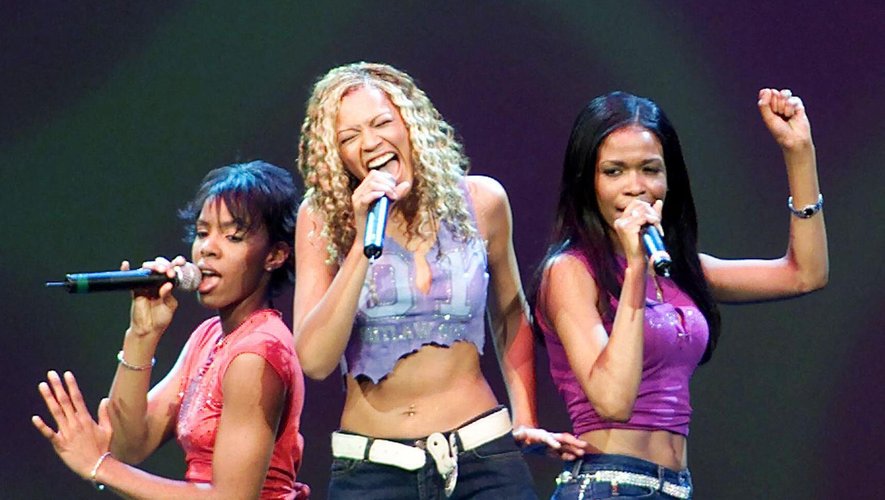(ETX Daily Up) – They are between twenty and thirty years old. They grew up in the 2000s, but they have few memories of it. However, the Z like to update the aesthetic of this decade, nicknamed “Y2K”. Being cool in the early 2020s also means embracing the fashion and pop culture of this era idealized by young people.
Since the pandemic, Generation Z (people born between 1995 and 2010) feeds a fascination for an era, the 2000s. On Tik Tok, the hashtag “Y2K” is driving the counters crazy with five billion views. On Instagram, many accounts have specialized in this area. Among the most followed: boshbabexoxo (153,000 subscribers), velvetcoke (1.7 million subscribers), 2000beachbunny (254,000 subscribers). The resurgence of the 2000s mixes with current pop culture and the aesthetics of this decade seep into several areas, from fashion to music, via television, and in particular series.
Y2K recycling
Low-waisted pants, baggy pants, crop tops, wedge shoes, ultra-colorful prints, tube tops… these pieces representative of the Y2K aesthetic are no longer so rare in the Z wardrobe. Worn at the time by Britney Spears, Christina Aguilera , Paris Hilton or Jennifer Lopez, muses still adored today, these clothes are experiencing a new lease of life thanks to these nostalgic… and eco-responsible Zs. Because this phenomenon is largely helped by the rise of the second hand, purchases in thrift stores and vintage. In the United States, members of Gen Z bought around 1.4 billion pieces of second-hand clothing in 2022, an increase of 40% in one year, according to the latest report from ThredUp. In their closet, two out of five pieces are second-hand clothes. And more than eight in ten Gen Z Americans (83%) have purchased, or are open to the idea of purchasing, an item of clothing that has already been worn by someone else.
This return to the past has revived cult brands of the 2000s such as Von Dutch, Juicy Couture, Miss Sixty or Ed Hardy. He has also brought up to date a desire for rhinestones and sequins, butterflies and ultra-vitamin colors, two-tone hair, “spiky buns” (which consists of letting the ends of your hair protrude from your bun to give it a spiky look), butterfly haircut, beaded afro braids or “French braids” (which consists of half-braiding a wick). The Zs opt for the glamour, exuberance and daring of this decade – a festive style that their era seems to be lacking – with the help of influencers and stars of today, like the singers Dua Lipa and Olivia Rodrigo, Bella Hadid or Hailey Bieber.
The comforter effect
Far from reproducing only the look of the Y2K, the Z dive nostalgically into the music, technology or television of those years, in their own way. This generation (re)discovers many key entertainments of the time. Remember, last year, the trend Rom-Com core, which involved dressing like the heroines of 2000s romantic comedies. . Having become timeless pop culture references for Generation Z, these films are regularly cited in content posted on social networks. The Zs also like to quote the reality TV “The Simple Life”, worn by Paris Hilton and Nicole Richie, which paved the way for the reign of the Kardashian family. They have fun taking their lines and turning them into memes on social networks. We can also mention the sitcoms of the Disney stable, such as “Lizzie Mcguire”, “Phenomenon Raven” or “Hannah Montana”, with Miley Cyrus, which many consider to be the golden age of the entertainment channel for youth, or the multiple returns or reboots of series from those years (“Gossip Girl”, “Gilmore Girls”, “Charmed”, “Un dos tres”…).
“Studies show that watching a television program linked to childhood acts as a tranquilizer, it does us good, explains Emmanuelle Fantin, professor and researcher at La Sorbonne in an article from the Canadian site. The Press. To explain this fascination of Gen Z for the 2000s, many specialists evoke the effect of “nowstalgia”. These young people idealize a past they have barely known. An effect that is not specific to this generation, but a society in crisis generally gives rise to even more feelings of nostalgia. And on this side, the Z have the feeling of living their youth against the backdrop of health, economic and environmental crises. For them, the 2000s would be synonymous with exuberance, celebrations and optimism, far from the anxiety and gloom of the 2020s. But if they idealize this past, they take it, knowingly or not, that the best. Because we must not forget that the 2000s was also the decade of the September 11 attacks, the wars in Iraq and Afghanistan, the global financial crisis and the Tsunami in Southeast Asia.

